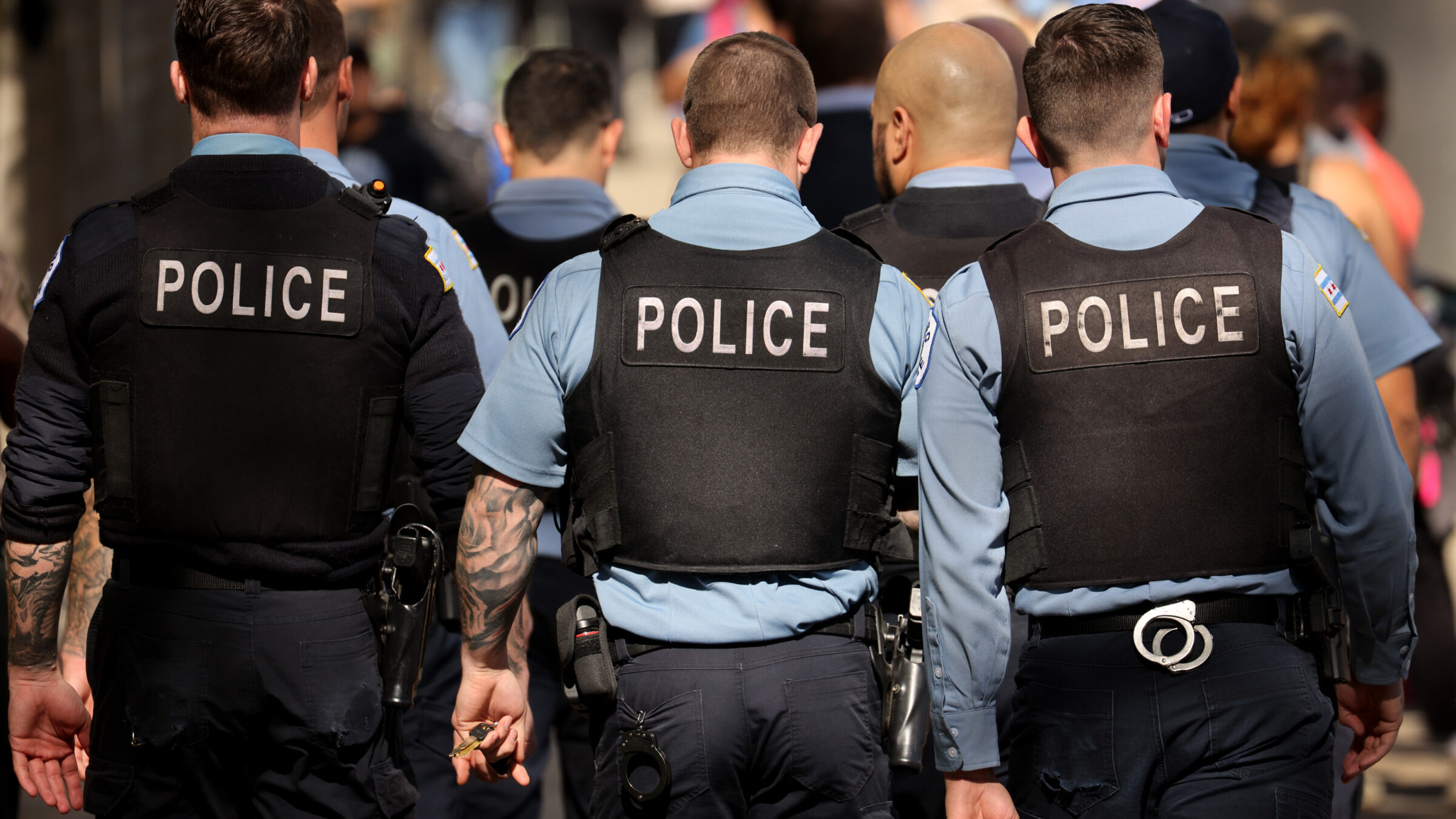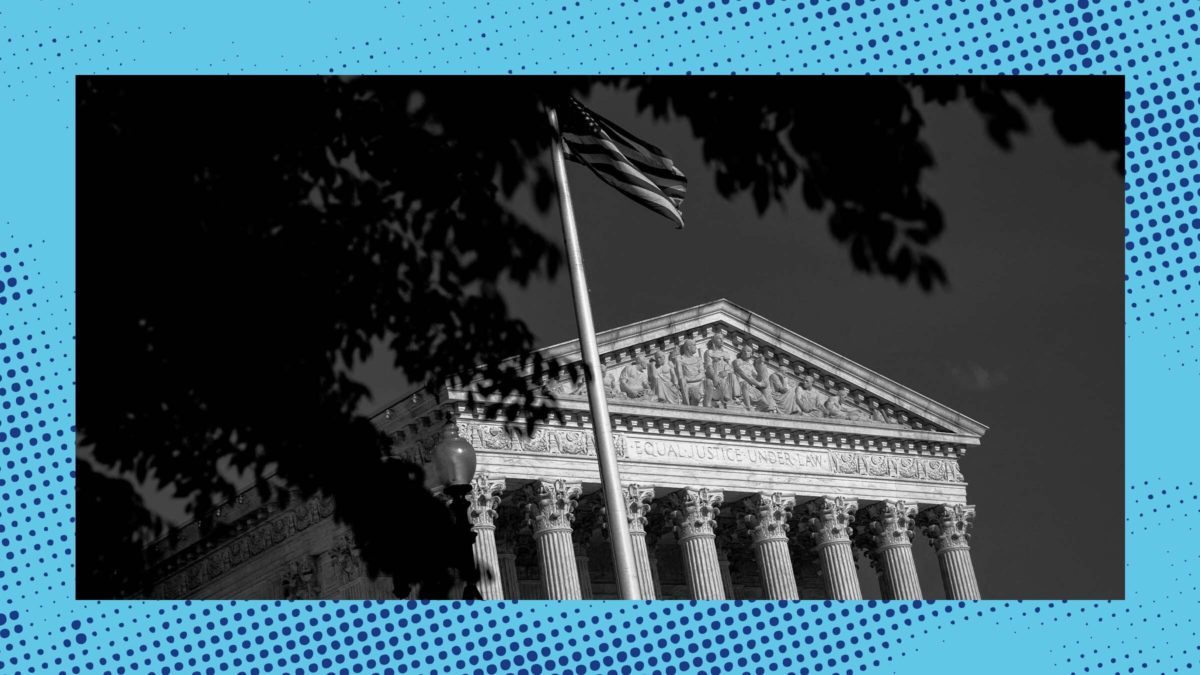In 2017, Halima Culley bought a car for her son to use when he went off to college at the University of South Alabama. A few years later, police pulled Halima’s son over and found weed and a gun in the car, a 2015 Nissan Altima. Police impounded the car, which Halima owned, and arrested her son, who eventually pleaded guilty to a minor drug offense.
Halima, though, was never charged with any crime. She didn’t know her son had weed in the car. And she wanted her car back.
Alabama would not make it easy. The state sought to keep her car by using a process called civil asset forfeiture, which lets the government seize money and property allegedly involved in a crime. Alabama law allows the state to keep the property it seizes while a forfeiture action proceeds through the courts—a process that can take months or even years. For people like Halima, the “exclusive means” available for getting their property back earlier is ponying up a bond of twice its value, as assessed by the sheriff or court clerk. For Halima, the bond could easily have been more than $30,000.
Halima contends that this gussied-up hostage situation is unconstitutional. She argued twice—first before the Southern District of Alabama, and then before the Eleventh Circuit Court of Appeals—that the Constitution’s protections against deprivations of property “without due process of law” entitle her to a prompt hearing on whether she can get her property back until a court makes a final decision on the civil asset forfeiture case. She lost both times. Halima will be making her argument once again on October 30—this time, to the Supreme Court in Culley v. Marshall.
Civil asset forfeiture laws, which are in place in all 50 states and D.C., let cops and prosecutors use flimsy allegations of criminal connections to turn people into a revenue source worth tens of billions of dollars. Like Halima, many haven’t even committed a crime. Her case will determine what kind of opportunity people have to take back what’s theirs.

TIMOTHY A. CLARY/AFP via Getty Images
The technical question in Culley is how courts should assess the constitutional adequacy of the state-level process for getting your stuff back. Alabama argues, and lower courts agree, that the right standard comes from the Court’s 1972 decision in Barker v. Wingo—and under it, they say, Halima loses. Barker was a decision about waiving the right to a speedy criminal trial in which the Court considered, among other things, what caused a delay and whether the defendant asserted their speedy trial right. The lower courts think those factors cut against Halima because she didn’t use Alabama’s mechanism to recover property right away (read: pay the ransom).
The lower courts also fault Halima for doing “nothing to press forward on the underlying forfeiture case.” They largely ignore that the same could be said of Alabama: The state initiated forfeiture proceedings in February 2019, but sat on the case until the court scheduled a status conference in September 2020, when Halima filed and won a motion to get her car back. The lower courts graciously conceded that Halima was “perhaps not solely responsible for the delay” but still “played a significant role,” since she “did not proceed with the bond nor any pleadings requesting the state court set the matter for hearing.”
Why a Sixth Amendment speedy trial standard should govern a Fourteenth Amendment due process case, I couldn’t tell you. But the upshot of this is: The government kept Halima’s car for almost two years and then said that it was her fault. Chiding her for not pressing the case effectively puts the responsibility on regular people to have a working knowledge of how arcane civil procedure rules apply to asset forfeiture actions. Such a rule punishes people who had the good sense not to go to law school.
Halima argues that the right standard comes from the Court’s 1976 decision in Mathews v. Eldridge, a more flexible balancing test that considers the risks of wrongful deprivations of property. The district court was firm that Mathews is the wrong standard, but said Halima would fail that one, too, since she “still has the ability to seek the return of the property by paying the bond and filing a request with the court for an expedited proceeding.” It also figured that “extra proceedings would present an undue significant burden” on the state, “especially in light of the ability of a claimant to reclaim the property through the bond process.” In other words, it’s a bigger burden on the government to make a quick decision on whether Halima can keep her stuff than it is on Halima to fork over a metric ton of cash.
Civil asset forfeiture is one of those rare areas of cross-ideological consensus where something is near-universally recognized as messed up. Groups as dissimilar as the Cato Institute and the Constitutional Accountability Center have filed amicus briefs in support of Halima. The conservative Institute for Justice writes that the practice is “fueled” by a “profit incentive,” while the National Federation of Independent Small Businesses says that it “runs roughshod over due process.” In a 2017 case, Justice Clarence Thomas wrote that “this system—where police can seize property with limited judicial oversight and retain it for their own use—has led to egregious and well-chronicled abuses.”

Photo by Scott Olson/Getty Images
It’s hard to know the full extent of the damage caused by civil asset forfeiture—most states don’t require the online publication of forfeiture records, and aren’t eager to comply with records requests—but by one estimate, the federal government and state governments have pocketed at least $68.8 billion through civil asset forfeiture. The government is well aware of the financial incentive of picking pockets: For example, the Institute for Justice’s amicus brief mentions an incident in which New Mexico officials were caught on tape referring to forfeited property as “little goodies,” and another in New Jersey where a government lawyer described forfeited flatscreen TVs as “very popular with the police departments.” That same lawyer was happy to give his friends on the force the homie hookup: “If you want the car, and you really want to put it in your fleet, let me know—I’ll fight for it.”
Troublingly, the federal government and more than a dozen state and local government groups filed amicus briefs on the side of highway robbery, thus putting them in the bizarre position of getting out-ethics’d by Clarence “I Do What I Want” Thomas. The states argue that civil asset forfeiture is a deterrent that “eliminates the means for committing crime” and “disrupts” the “cash flow” of criminal organizations. This does not paint a realistic picture of where that money comes from or where it goes. Cops often don’t charge the people whose property they take, and the median amount seized is a little more than $1200; in some states, it’s as low as a few hundred bucks. This suggests the victims are regular people, not deep-pocketed kingpins. Paying for a lawyer to challenge the forfeiture would cost much more than what was forfeited, so a lot of people don’t fight back.
Ultimately, Halima’s case is only about what hoops people must jump through to get their property back. Whatever the result in Culley v. Marshall, it won’t stop cops from taking people’s stuff in the first place—especially people who are innocent, impoverished, or don’t know their rights. The only question is how long the government will drag that harm out.

